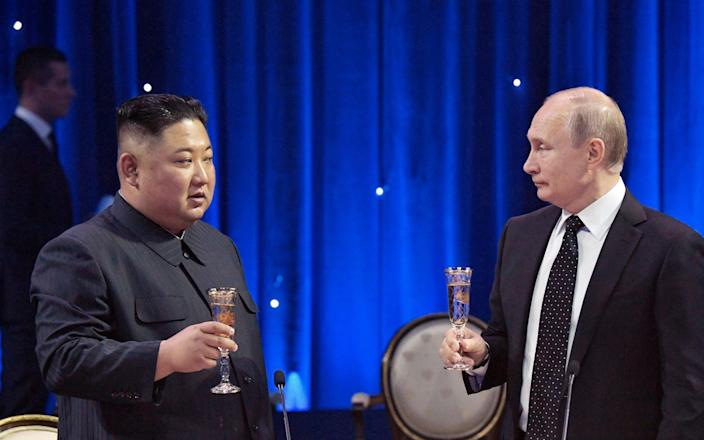
The European Union and G7 are preparing to strip Russia of its “most favoured nation” status in a move that would leave the country as a trade pariah on the level of North Korea or Cuba.
President Joe Biden is expected to announce the plans later on Friday.
Revoking Russia’s most favoured nation status would allow the Western allies to slap tariffs on its exports, further crippling its economy.
The White House said Mr Biden would announce further actions “to hold Russia accountable”.
A Department for International Trade spokesman said: “We are discussing further steps to ramp up pressure on Russia’s economy and nothing is off the table until Russia reverses its illegal invasion of Ukraine.”
[embedded content]
Coordinated action to cut Russia out of the global trade network would compound an extensive array of sanctions aimed at severing the country’s links with the West.
Tariffs push the cost of Russian goods higher for international buyers, increasing the cost of trade and meaning many will either look elsewhere or demand heavy discounts.
The EU is Russia’s biggest trade partner, importing goods worth €95bn in 2020.
The UK’s Russian imports were worth just over £10bn last year – chiefly refined oil and “unspecified goods”, encompassing parcels, low-value items and precious metals including gold.
Canada already moved to withdraw most favoured nation status from Russia last week, slapping 35pc tariffs on most of the country’s exports.
World Trade Organisation rules stipulate that countries cannot offer more favourable terms to other members, but legislation used by Ottawa allows this most favoured status to be suspended during a war.
Russian commerce appears to have already buckled, with companies pulling out of the country and suspending trade over fears of violating sanctions.
Some companies have also acted directly. In the UK, supermarkets including Co-op and Morrisons have taken Russian-made vodka off their shelves.
Most of the world’s biggest shipping companies, including Maersk and MSC, have halted container shipping to and from Russia.
Data from FourKites, a supply chain platform, shows Russian import volumes were 40pc lower in the week to Tuesday than before Russia’s invasion of Ukraine.




